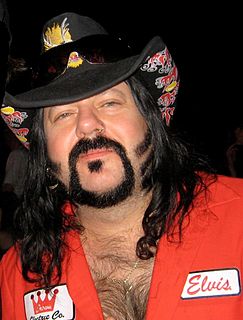A Quote by Susanna Kearsley
It's too easy, you see, to get trapped in the past. The past is very seductive. People always talk about the mists of time, you know, but really it's the present that's in a mist, uncertain. The past is quite clear, and warm, and comforting. That's why people often get stuck there.
Related Quotes
We learn in the past, but we are not the result of that. We suffered in the past, loved in the past, cried and laughed in the past, but that's of no use to the present. The present has its challenges, its good and bad side. We can neither blame nor be grateful to the past for what is happening now. Each new experience of love has nothing whatsoever to do with past experiences. It's always new.
We human beings have enormous difficulty in focusing on the present; we always thinking about what we did, about how we could have done it better.... or else we think about the future, about what we're going to do.... But at this precise moment, you also realize that you can change your future by bringing the past into the present. Past and future only exist in our mind. The present moment, though, is outside of time, it's Eternity.... It isn't what you did in the past the will affect the present. It's what you do in the present that will redeem the past and thereby change the future.
But the past does not exist independently from the present. Indeed, the past is only past because there is a present, just as I can point to something over there only because I am here. But nothing is inherently over there or here. In that sense, the past has no content. The past - or more accurately, pastness - is a position. Thus, in no way can we identify the past as past
We think that the world is limited and explained by its past. We tend to think that what happened in the past determines what is going to happen next, and we do not see that it is exactly the other way around! What is always the source of the world is the present; the past doesn't explain a thing. The past trails behind the present like the wake of a ship and eventually disappears.
To dwell in the here and now does not mean you never think about the past or responsibly plan for the future. The idea is simply not to allow yourself to get lost in regrets about the past or worries about the future. If you are firmly grounded in the present moment, the past can be an object of inquiry, the object of your mindfulness and concentration. You can attain many insights by looking into the past. But you are still grounded in the present moment.
Widge can see the past." Poppet says suddenly. "That's why his stories are so good." "The past is easier," Widget says. "It's already there." "In the stars?" Bailey asks. "No." Widget says. "On people. The past stays on you the way powdered sugar stays on fingers. Some people can get rid of it but it's still there, the events and t hings that pushed you to where you are now.
Originally the structure was . . . a modern narrator who would appear intermittently and talk about his memories of his grandmother, which would then be juxtaposed against scenes from the past. But the stories from the past were always more interesting that the things in the present. I find this almost endemic to modern plays that veer between past and present. . . . So as we've gone on developing GOLDEN CHILD, the scenes from the past have become more dominant, and all that remains of the present are these two little bookends that frame the action.
And it is clear to Evan, now: the difference between what is and what has been done; the present and the past. He sees that what he does and who he is isn't based on the past unless he wants it to be... No. That is the past, which has been seen differently through many different eyes and has become hazy and unclear, like a pond when stirred with a stick. Only the present moment is clear and free from prejudice.





































